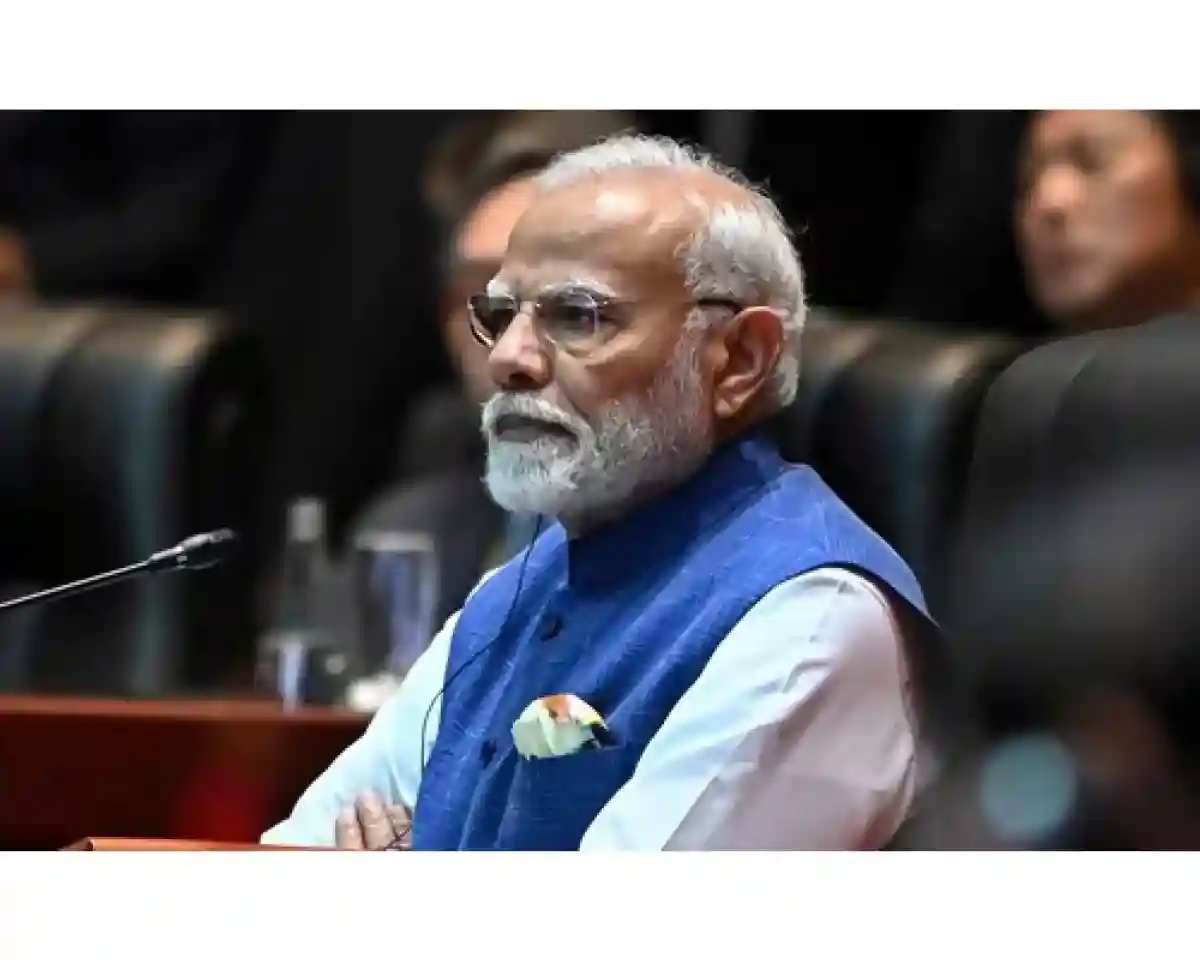PM Narendra Modi spoke at the 19th East Asia Summit in Laos, highlighting that terrorism poses a significant danger to worldwide peace. He also mentioned that groups supporting humanity will need to collaborate to address the issue. “Terrorism poses a grave threat to worldwide peace and security as well.” To confront it, supporters of humanity must unite their efforts. The Prime Minister emphasized the need to enhance mutual cooperation in the realms of cyber, maritime, and space.
The Global South countries are being greatly affected by conflicts happening in various parts of the world. Everyone desires peace and stability to be reinstated promptly, whether in Eurasia or West Asia. I hail from the homeland of Buddha and have consistently expressed that this is not a time for conflict.
Resolutions to issues cannot be found through warfare. He emphasized the importance of respecting sovereignty, territorial integrity, and international laws. “Emphasizing a humanitarian perspective, dialogue and diplomacy must be the main focus.” The Prime Minister stated that India will keep contributing in every possible way to fulfill Vishwabhadhu’s responsibility.
Respecting sovereignty, territorial integrity, and international laws is essential, giving precedence to dialogue and diplomacy. He stated that he hails from the land of Buddha and has emphasized that this is not a time for war, as solutions to issues cannot be found on the battlefield. Everybody in Eurasia or West Asia desires a prompt restoration of peace and stability. He stated that conflicts occurring in various regions of the world are causing the greatest harm to countries in the Global South.
We back the ASEAN stance on the matter in Myanmar. We also endorse the Five-point Consensus. Simultaneously, we feel that upholding humanitarian aid is crucial. Proper actions must be implemented to restore democracy as well. We are of the opinion that Myanmar should be involved rather than being kept separate. He stated that India, as a neighboring country, will carry on meeting its obligations.
PM Narendra Modi stated that the East Asia Summit is a crucial component of India’s Act East Policy. It is our belief that maritime operations should be carried out in accordance with the United Nations Convention on the Law of the Sea (UNCLOS) to guarantee freedom of navigation in both water and air. The well-being of the whole Indo-Pacific region relies on the peace, security, and stability of the South China Sea. The Prime Minister emphasized the significance of a free, open, inclusive, prosperous, and rule-based Indo-Pacific for the advancement of the whole region.
The Prime Minister stated that India has consistently backed ASEAN Unity and Centrality. ASEAN holds a central role in India’s vision for the Indo-Pacific and cooperation within the Quad. The ‘Indo-Pacific Oceans Initiative’ of India and the ‘ASEAN Outlook on Indo-Pacific’ share significant similarities. A free, open, welcoming, prosperous, and rule-based Indo-Pacific is crucial for the peace and advancement of the entire region. The whole Indo-Pacific region benefits from the peace, security, and stability of the South China Sea.
PM Modi also conveyed his sadness and expressed sympathy for the casualties caused by Typhoon Yagi in Vietnam. My heartfelt sympathies go out to those impacted by Typhoon Yagi. He stated that during this challenging period, we’ve offered humanitarian aid via Operation Sadbhav. Prime Minister Narendra Modi was the first leader invited to speak at the East Asia Summit by the host and incoming chair. India’s contribution and significance within the ASEAN was also acknowledged.
PM Narendra Modi was acknowledged as the sole leader in the room with the highest participation in the East Asia Summit, attending nine out of 19 summits. Prime Minister Narendra Modi expressed in a post that India considers Thailand as a highly valued friend.
Encountered PM Paetongtarn Shinawatra in Lao PDR. India deeply values the friendship of Thailand. Our discussions centered on enhancing trade relations between our countries and promoting cultural connections. The Prime Minister’s X post mentioned potential in areas such as defense, shipping, digital innovations, and others. The Prime Minister emphasized that India will still give top importance to its relationship with Japan, a reliable ally and strategic partner, according to a statement from the Ministry of External Affairs (MEA). The statement noted that both leaders highlighted the importance of India and Japan being vital allies in ensuring a peaceful, secure, and prosperous Indo-Pacific region, and reaffirmed their dedication to collaborating towards this objective.
Prime Minister Narendra Modi discussed collaboration in areas such as economic cooperation, tourism, education, and innovation during his meeting with Luxon, the New Zealand counterpart. It was the initial encounter of the two rulers. The Prime Minister’s Office stated that the two leaders talked about enhancing the India-New Zealand partnership in different areas such as trade, investment, defense, education, agriculture, space technology, and more.
Prime Minister Narendra Modi was pleased with New Zealand’s decision to become a part of the International Solar Alliance. The two leaders reaffirmed their dedication to enhance collaboration in international forums and reiterated their pledge to elevate the India-New Zealand relationship. Narendra Modi invited Prime Minister Luxon to visit India on dates that worked for both of them, and Luxon accepted the invitation.
Narendra Modi also engaged in discussions with the Australian Prime Minister Anthony Albanese, Malaysian leader Anwar Ibrahim, Charles Michel who heads the European Council, Bongbong Marcos, the President of the Philippines, and Klaus Schwab, who serves as the Executive Chairman of the World Economic Forum. Indonesia, Malaysia, the Philippines, Singapore, Thailand, India, Vietnam, Laos, Cambodia, and Brunei Darussalam are all part of the ASEAN member States. The East Asia Summit consists of the 10 ASEAN nations along with eight partners, which include Australia, China, India, Japan, South Korea, New Zealand, Russia, and the United States. Timor-Leste holds observer status within the EAS.

